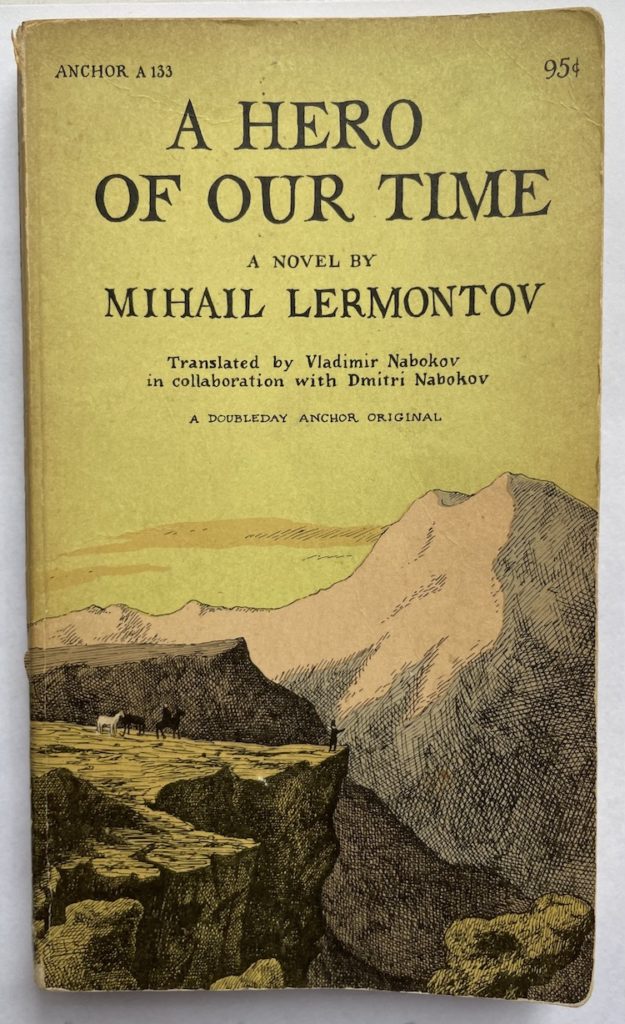The cover of this mass-market paperback of Mihail Lermontov’s 1840 novel was designed by Edward Gorey. It is taken from a portion of a painting by Lermontov. The typography is also by Gorey.

Here’s an excerpt from the novel. It might as well be a prose caption describing the experience of the climb up the mountain:
"All was silent in heaven and on earth . . . only once in a while, a cool wind would come rippling from the east, raising a little the rime-covered manes of the horses. We set out; five skinny nags dragged our carriages with difficulty along the road winding up Mount Gud. We followed on foot, chocking the wheels with stones whenever the horses became exhausted; the road seemed to lead up into the sky because, as far as the eye could see, it kept ascending and, finally, it lost itself in the cloud which, since the previous evening, had been resting on the summit of Mount Gud, like a vulture awaiting its prey; the snow crunched underfoot; the air was becoming so rare, that it was painful to breathe, the blood kept rushing to our heads every moment, but despite all this, a delightful kind of feeling spread along my veins, and I felt somehow elated at being so far above the world—a childish feeling, no doubt, but, on getting away from social conventions and coming closer to nature, we cannot help becoming children: all the things that have been acquired are shed by the soul, and it becomes again as it was once, and as it is surely to be again some day. He who, like me, has had occasion to wander over wild mountains and scrutinize, for a long time, their fantastic shapes, and avidly swallow the vivifying air pervading their gorges, will certainly understand my desire to render, to relate, to paint those magical images."
And here is Vladimir Nabokov’s sense of the novel:
". . . though of tremendous and at times somewhat morbid interest to the sociologist, the "time" is of less interest to the student of literature than the "hero." . . . [Y]oung Lermontov managed to create a fictional person whose romantic dash and cynicism, tigerlike suppleness and eagle eye, hot blood and cool head, tenderness and taciturnity, elegance and brutality, delicacy of perception and harsh passion to dominate, ruthlessness and awareness of it, are of lasting appeal to readers of all countries and centuries . . ."
